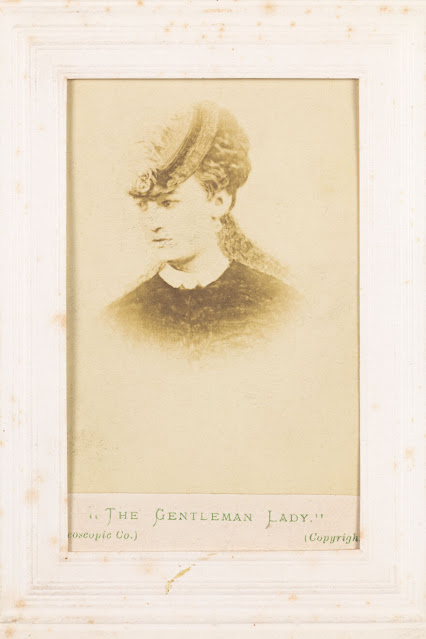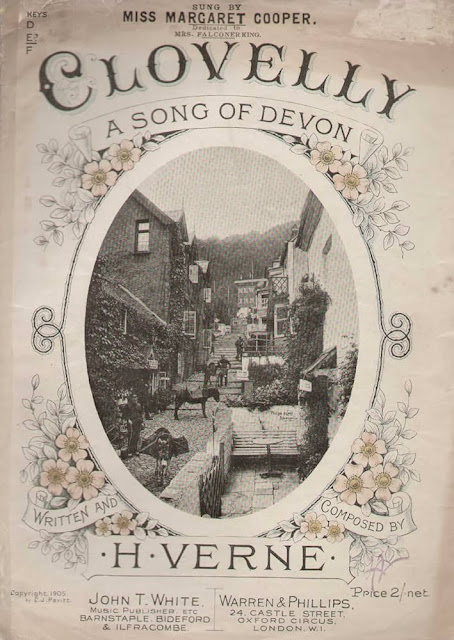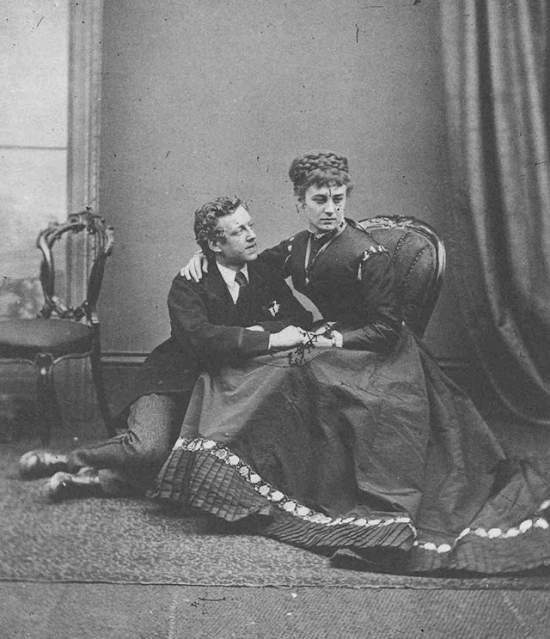Quiet day today. Autumnal. Just felt like doing nothing. Too cold and breezy to go out in the garden. Wendy and Pat went off to buy nature cures and bacon bones and, of course, cat food and I promptly thought ...
I looked at my desktop. Bit of a tidy? What are these bits that I've downloaded from time to time ... why have I kept an Arthur Lloyd music sheet? He's been thoroughly researched and has his own website ...
Open the cover. Ah, that's why.
Who, pray, was C J Pavitt? Well, I found out, and he linked up with another story I'd looked into some years ago ...
Charles John PAVITT (b Clavering, Essex 1843 x 17 October; d Barnstaple 2 June 1917) was a son of James Pavitt, grocer, wine-merchant and corn-miller, and his wife Emma née Spencer; and a grandson of James the elder the proprietor of Clavering Mill. I think father may have been amateurly musical or 'theatrical', for as early as 1864, I see his three sons William Spencer (1839), George Hawkes (1841) and Charles James (1843) appearing in concerts in Chelmsford. Charles played the harmonium, a piano selection from Faust and sang 'The Bashful Man'.
The family removed from Clavering to Battles Bridge Mill, and Charles in particular was seen in local concerts. I see him singing 'Tom the Tinker' and 'Skying the Copper' to huis own accompaniment, recited 'The Song of the Shirt', while father lectured on 'The Education of Girls' et al at the National School in Rayleigh. The brothers played in amateur dramatics and, there (I presume), Charles met one Ernest Boulton. And a bell rang in my brain.
Mr Ernest Boulton was, to put it politely, a transvestite and a lady of the town. He became celebrated, to put it politely, a couple of years later when, dressed to the nines, for he was not poor, he was arrested for soliciting from a theatre box ... it is a long story, semi-fictionalised in a book Fanny and Stella by Neil McKenna. I gave my copy away, so I can't look to see if Charles Pavitt makes an appearance. Anyway, there seems little doubt that 'Stella' was for a while the concubine of our Mr Pavitt.
Before the duo split, they had appeared around Essex in playlets and recitations where Boulton raised admiration for his female impersonation (My New Housekeeper), and Pavitt for his comic monologues ('Jeddiah and his Peggy'. 'Lady Clara Vere de Vere', 'An Evening Party at Mrs Molloy's') alongside father and brothers. Charles wrote 'an opera in 5 minutes' The Power of Gold for Stella to perform.
In the wake of the luscious scandal, Charles evidently found it advisable to change locality, and in 1872 he turns up in London, doing his ventriloquism and comic song/monologue at the Metropolitan Music Hall ('Spooning at the bar') under the name of 'H Verne'. And he found himself a new partner in one Edward Bevan Burland otherwise 'Ernest Bruce'. I see them at Weston super Mare in August 1871, while poor Stella was having her rectum investigated by a team of police doctors for evidence of wrong-way traffic, playing excerpts from Sheridan. It was 'Bruce' who played Lady Teazle and Mrs Malaprop.
The pair worked provincial halls and institutes with their tidy little act for a decade and more, while Charles turned out regular ventriloqual sketches and ditties of which Our Amateur Concert (in which he represented all the participants) seems to have been the most popular. In 1885, however, Charles turned up at the Egyptian Hall, supporting Maskelyne and Cooke in their famous show. I think Edward may have been ill. They went to the country, and then to Dublin ... and then Edward died (10 September 1887), short of his 50th birthday. My last sighting of him is at Fred de Lara's concert, impersonating 'Mrs Turtledove' in May of that year
Charles returned to Maskelyne and Cooke, played his act solo here and there (comic operetta Home Rule, patriotic song 'No Fear') and in 1905 he went on a holiday to Ilfracombe. I don't know whether he went to Ilfracombe because John Thomas White, musicseller, lived there, but White seems to have been his last love (and heir) and he gave Charles the biggest song success of his career when he published his seaside song 'Clovelly'.
An attempt to repeat the success was not as successful
Charles stayed in Devon, and died in Barnstaple during the Great War, aged 73.
He had had a modest career as an entertainer, penned some songs and sketches, and stayed clear of the trouble into which his more exhibitory friends had got. I hope he was happy.
Oh, here's the rest of his song which got me into this. Maybe a Gay Museum will snap it up off ebay ...
Footnote. A friendly Barnstaple journo (one of the boys?) gave him an obituary of a most exaggerated kind:'30 years with Maskelyne and Cooke' but I will copy it here anyway with a pinch of pepper ..
Here's one from piano.man .. always a good place to start!














No comments:
Post a Comment